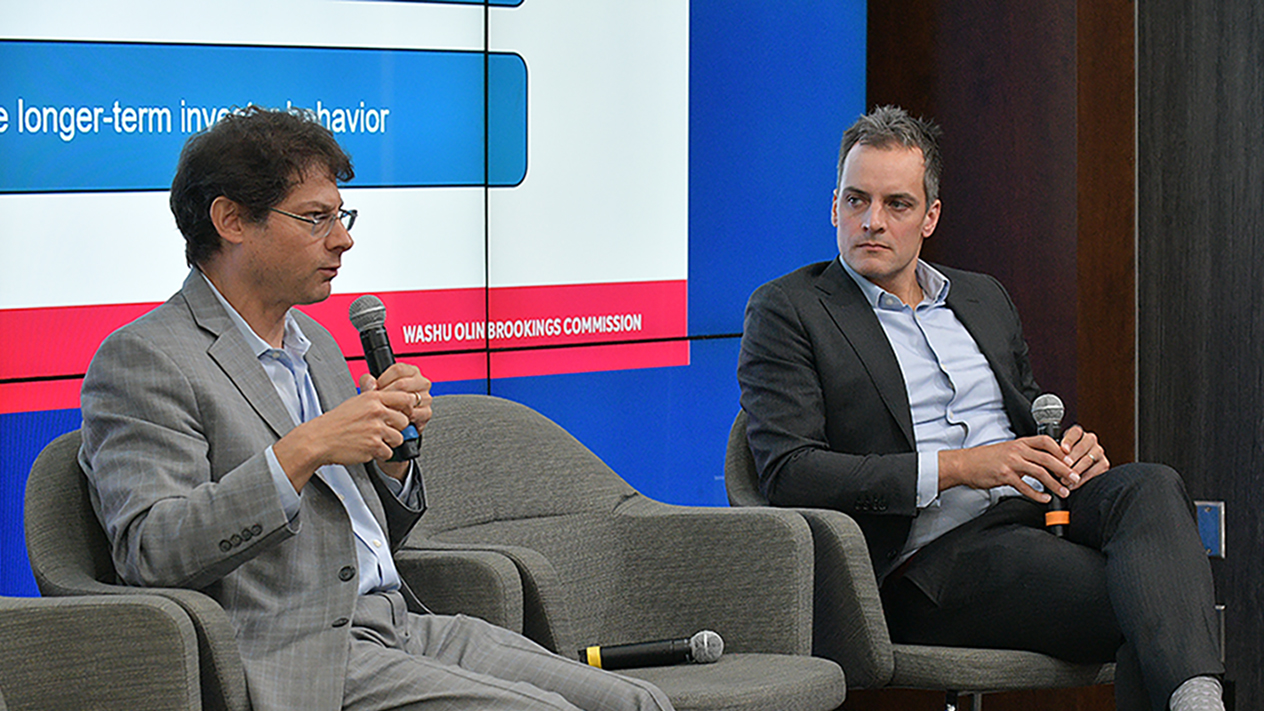2023-24 Commission

Main Street’s Tidal Wave of Transition
Given the significant percentage of closely held businesses owned by baby boomers, it is estimated that companies worth approximately $100 trillion will be passed on to successors, inheritors or ultimately sold in the marketplace in coming years.
Some scholars have referred to this coming wave of transition as a kind of “silver tsunami.” And while large public organizations receive a disproportionate amount of attention in the business media landscape and university scholarship, they actually account for a relatively small portion of all economic activity. In contrast, more than 130 million people in the United States work for employers with fewer than 100 employees, and 33 million small businesses in the country collectively account for more than 99% of all registered businesses.
The coming (and significant) shift of ownership coupled with the growing prominence of private equity investment into middle market companies raises questions both on what these companies are transitioning into and the corresponding impact on the economy and the communities these firms are embedded within.
The "Silver Tsunami"
Listen to testimonials from small business owners address how they have experienced transitioning into retirement.
Questions Considered
Questions about this wave of transition formed the crux of the 2023-2024 Olin Brookings Commission’s work, which included a new panel of experts representing business owners, private equity firms, antitrust regulators and business strategists from WashU Olin Business School, the Brookings Institution and beyond. Their work involved examining issues such as:
- The landscape of transition and the benefits of certain forms of transition over others.
- The financial and nonfinancial outcomes implicit in different forms of transition (e.g., bankruptcy rates, the degree to which these companies provide good jobs, the amount of capital that stays in the community).
- The policy landscape and broader cultural forces affecting transition.
In the study presented in Washington D.C on October 8th, 2024, we illuminated these issues by:
- Identifying strategies used by distinct investors in the small business market
- Codifying how owner’s navigate trade-offs in transitions of business ownership
- Clarifying how different types of ownership structures affect workers in these firms
- Highlighting key policy implications based on these findings
The commission’s final report was titled “The Tidal Wave of Transitions on Main Street”. Download the report or watch a recording of the commission presentation

The Owner's Box
15 episodes of The Owner's Box since the first episode, which aired on March 26th, 2024.
Explore EpisodesThird Commission Collaborators and Timeline
-
Commission members
- Peter Boumgarden, commission chair, Olin's Koch Family Professor of Practice in Family Enterprise; Director of the Koch Family Center for Family Enterprise
- Brendan Ballou, author of Plunder: Private Equity's Plan to Pillage America, served as special counsel for private equity in the Justice Department
- Ronnie Chatterji, Mark Burgess & Lisa Benson-Burgess Distinguished Professor, Duke University’s Fuqua School of Business
- Lynn Gorguze, president and CEO of Cameron Holdings
- Aaron Klein, Brookings’ Miriam K. Carliner Chair–Economic Studies and senior fellow for the Center on Regulation and Markets
- Mike Mazzeo, dean, WashU Olin Business School
-
Research team/faculty conveners
- John Barrios, Olin assistant professor of accounting
- Seth Carnahan, Olin associate professor of strategy
- Bart Hamilton, Olin’s Robert Brookings Smith Distinguished Professor of Entrepreneurship
- Margarita Tsoutsoura, Olin associate professor of finance
- Aditi Vashist, Olin PhD candidate in organizational behavior
-
Project Timeline
- October 26, 2023: Initial kickoff meeting (virtual) held with the commission
- November 30, 2023: Follow-up discussion (virtual) held with the commission to ground members in the work and the issues
- February 28, 2024: Family business symposium at WashU Olin (in-person)
- May 2, 2024: Commission met to synthesize findings; converged on policy recommendations
- October 8, 2024: Presented final report and recommendations at the Brookings Institution in Washington, DC
